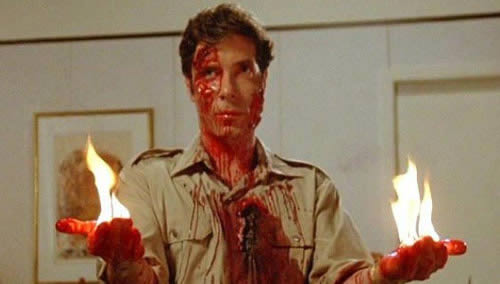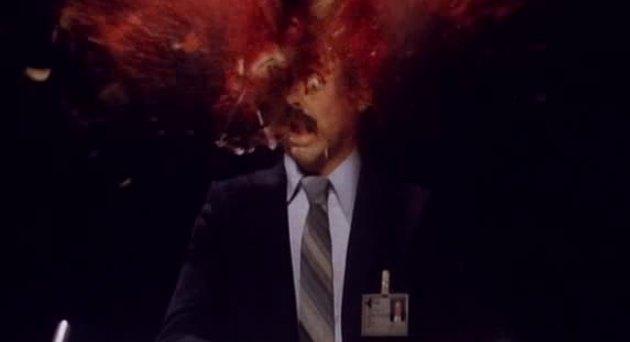Released at a time when tech nerds were emerging from their garages and dorms to reengineer the world as we watched with shock and awe, David Cronenberg’s 1981 sci-fi mindblower about bioengineered telepaths, Scanners, could be read as an analogue to the rise of the machines and those who built them. Scanners and digital revolutionaries who began their ascent in the late 1970s can be described alike: born with special gifts, could see the future before others, desired to upset the accepted order and create a new society in which the mind and its powers would be predominant. “They’re pathetic social misfits,” says one character of the tortured titular telepaths but might as well be describing those responsible for technology’s migration from the monolith to the individual. “They want to destroy the society that created them.” And so they did, more or less.
In Cronenberg’s world, Scanners are misbegotten men and women who were born telepaths with terrible talents. They cannot only read your mind but can also use mere concentration to blow up your brain. In order to keep them from using this talent, Scanners are monitored and sometimes hunted. It seems that their strange skills are the result of their pregnant mothers being prescribed an experimental tranquilizer that was discontinued in the 1940s after a brief trial run. While the drug soon disappeared, the children have grown up with extraordinary powers, unbeknownst to most of the world.
The scientist who created the drug, Dr. Paul Ruth (Patrick McGoohan), a pioneering biochemist with a patchy past, has made it his life’s work to monitor the Scanners for the ConSec corporation. Ruth reintroduces into society a Scanner named Cameron Vale (Stephen Lack), who he has kept “on ice,” to glean information about the machinations of a fellow Scanner, Darryl Revok (Michael Ironside). The latter has apparently hatched a plan with a confedrate inside ConSec to create a new breed of Scanners that he can use as his army. Cameron and Revok, who have some sort of mysterious link to one another, engage in a battle of terrifying, combustible wills.
Changing the world, or at least the way we interact with it and one another, requires getting others to see reality in a whole new way, whether you’re hoping to grow scanners or consumers, a fact which has become ever clearer as we now live in a world in which a small band of Silicon Valley superstars have commandeered the means of communication. As Revok says, while sounding not unlike a titan of technology preparing for an IPO: “We’ll bring the normals to their knees. We’ll have an empire so brilliant, so glorious that it will be the envy of the whole planet.”•



